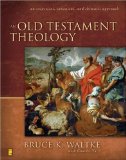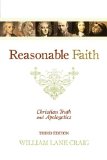Hospitality is a central issue in 3 John and an issue of great concern in the early church. The Didache, an early 2nd century Christian document written within a couple decades of John’s letter, even lays out some ground rules for determining whether or not a visiting apostle or prophet is a false one by how they receive hospitality (11:1-6).
The need to extend hospitality to guest ministers was a pressing concern for early churches. That world is a bit foreign to us, but this need makes good sense when you stop and think about it. As taxing as itinerant ministry is today, it would have been much worse in the 1st century.
Itinerant Ministry, Then & Now
Think about it this way. Back in October I visited CT to see my parents and speak at their church, the church of my childhood. The distance from my house to their’s is about 100 miles. My wife, 7.5 months pregnant at the time, and our 1.5 year old daughter packed up the car and drove. We made the drive in 1 hour 45 minutes, give or take. When we got there, we slept in a bed, took hot showers, ate good food and even visited the Mystic Aquarium.
But in John’s day, even a little trip like that would be a big deal. They wouldn’t have been driving in a car; they would either walk or maybe get lucky a catch a ride (a donkey? maybe a wagon of some sort?), hardly ideal conditions for a pregnant woman and a toddler (who likely would have stayed behind anyway). They would be exposed to the elements and, potentially even worse, bandits. We were fortunate enough to be visiting family, whereas the itinerant ministers sent by John probably didn’t have such luck (making the familial language key). If someone didn’t open their home, the guest speakers would hope to find a bed or a spot on the floor at an inn- and not exactly the Hilton. And because there was no phone system, internet or carrier pigeon (as far as I know), the arrival of guest ministers may or may not be announced ahead of time. Imagine 2 or 3 guys showing up in your town and hoping you’ll put them up, just because John sent them.
All this to say, hospitality was extremely important. Itinerant ministry would have been an exhausting lifestyle, and they desperately needed the kindness of fellow believers if they were going to survive for the long haul.
As I was reading through 3 John, I wondered if we have much of a parallel in our world today. We do have guest speakers at our church every so often, but it’s not nearly as draining today as it was then. We can fly someone into Boston, maybe even on Jet Blue! While no one in our church owns a large home, at least a few people have guest bedrooms to make available. We take them to good restaurants (mmmm, Jim’s Deli…) and, if they have an off day, they can do some sightseeing around Boston. Not too bad. Most of this takes minimal effort on the part of churchgoers.
It almost seems too easy, and makes me wonder if I’ve ever really seen a situation like John envisions. Have I ever seen someone open their home to great inconvenience, all for the sake of blessing a guest minister?
A Modern Day Gaius
Then I remembered Kumar and his family. I met Kumar in Kalmunai, Sri Lanka back in January 2005. I was part of a relief team that visited that town right after it was devastated by the tsunami on December 26, 2004. Kumar and his family lived close to the beach and had their house overrun by the tsunami. There was still a water line along the walls of the home about 5 feet high where the flood waters had settled for a while. Kumar, his wife and 3 teenage children (a son and two daughters) all survived, although not without a major scare. Donald, the 16 year old son, and his sister madly scrambled up a tree near the home and watched the waves drag bits of the town  underneath them out into the Indian Ocean, and when the waters receded briefly Kumar waded out and rescued them, only to make it back to the roof of his house just in time. (See the picture to the side, one of those was the tree- I can’t remember which one.)
underneath them out into the Indian Ocean, and when the waters receded briefly Kumar waded out and rescued them, only to make it back to the roof of his house just in time. (See the picture to the side, one of those was the tree- I can’t remember which one.)
They were able to scramble together some furniture, mostly picking it up wherever they could find it, and tried to get back to normal life. Then I showed up with my team. I was one of 3 men who stayed in their home for a while until room could open up at a guest house. They gave each of us our own room and a bed. I even had a powerful ceiling fan above me to help ward off mosquitoes, which probably saved me from malaria. Whenever I came into the house, they gave me tea and made sure I had what I needed.
It wasn’t until our last day staying at their home when we found out that they crammed all 5 of them into one room so we could have our own rooms and a bed. Because people in other cultures don’t show off their homes like we tend to, it never occurred to me they were doing that (we only found out because one of the other men staying there accidentally walked into their room while looking for the bathroom). Here was a family who had just endured one of the worst natural disasters in modern history, sacrificing their own comfort for our sake.
We were preparing for much worse when we left the States. I was intending to sleep under the stars and wear enough deet to kill a moose in order to avoid mosquitoes. I wasn’t necessarily looking forward to it, but was expecting it. Yet a family, far less fortunate than I, gave me their comfort so I could minister as effectively as possible. Let’s go back and reread 3 John 5-8:
5 Dear friend, you are faithful in what you are doing for the brothers and sisters, even though they are strangers to you. 6 They have told the church about your love. Please send them on their way in a manner that honors God. 7 It was for the sake of the Name that they went out, receiving no help from the pagans. 8 We ought therefore to show hospitality to such people so that we may work together for the truth.
Men like Kumar are worthy of commendation. He is a lot like Gaius, the man praised by John for extending hospitality to guest ministers. We left our homes “for the sake of the Name,” and Kumar worked with us “so that we may work together for the truth.”
So now when I read 3 John, I think of Kumar and his wonderful family. I have, on a number of occasions, “told the church about their love,” as I’m doing now.










